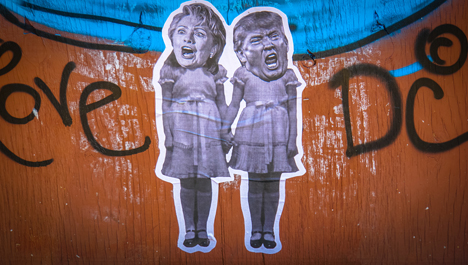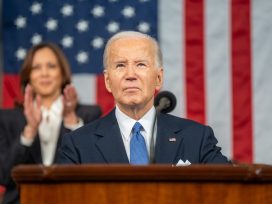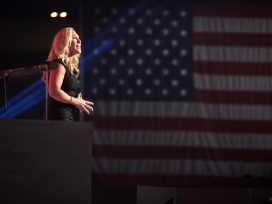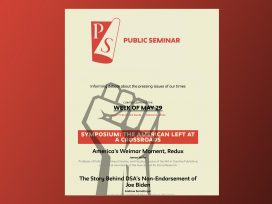When Hillary Clinton collapsed a few days ago, her handlers came up with a bunch of evasive explanations before admitting that she had pneumonia. Many are still wondering: did the evasion conceal a more serious illness? Most Americans feel guilty and annoyed at having to raise these questions, yet aren’t completely satisfied by the answers.

Photo: Ted Eytan, 28 May 2016. Source:Flickr
By now the public is familiar with Hillary’s duck-and-dodge technique. It’s not exactly lying, but it recalls Latinate words like ‘prevaricate,’ ‘dissemble’ – bending the truth, omitting it, concealing things, acting suspiciously. Unfortunately, it also recalls Bill Clinton’s talent for phrase-making in responses such as, ‘I didn’t inhale’ and ‘That depends on what is, is’, both classics of evasive rhetoric.
Of course voters also have to deal with Donald Trump’s lying. During the past year we’ve grown accustomed to his slash-and-burn technique, in which he peppers his speeches with a generous number of lies, repeats them until they become commonplace, then drops in an occasional insight or catch-phrase that by contrast seems original and refreshing.
In this period before the first debate on 26 September, lying has become the campaign’s central issue. In the European media, the phrase ‘post-fact society’ is batted about like a tennis ball; in the US, the media keep gleeful count of each candidate’s lies. New York Times columnist Paul Krugman wrote recently that his editors used to tell him not even to use the word; now lying defines the whole playing field.
What hasn’t been studied enough are Hillary’s and Trump’s contrasting styles of lying. Maybe they’ll have no effect on the voters, but they will influence – they already have – the rhetoric of candidates for the foreseeable future.
On 7 September, a TV network held a mock debate called ‘The Commander-in-Chief Forum‘. Instead of the candidates confronting each other, a moderator talked to each for 30 minutes and then asked for questions from the audience. It was a fiasco: the moderator was inept; neither candidate played by the rules; nobody said anything the least bit interesting.
Yet it was instructive.
Clinton’s style of fielding questions about her emails and decisions to invade Iraq and intervene in Libya had the defensiveness of a tired parent. ‘Look, kids,’ she seemed to be saying, ‘can’t you understand that nobody’s perfect?‘ She apologized many times: ‘Yes, I made mistakes.’ She explained and explained. She avoided stating the obvious – that she’d had a private email account because it was a hundred times more secure than the Pentagon accounts – and was impatient, condescending, nit-picking in true Clinton style. But she also seemed largely sincere.
The problem was that she was boring. The moderator kept interrupting her to imply that. You could say that her performance was pre-post-factual. In Hillary’s world there really is an objective truth. She may dance around it, but it is there, waiting to be revealed.
From Trump’s breezy entrance, he was playing a role: the strong, self-willed, already-elected dictator. Unlike Hillary he never expressed doubts, offered apologies, explained actions. Though he lied several times – that he’d never supported the Iraq war, that rape in the military was a ‘massive problem’ – the time-constraints of TV worked in his favour: what moderator could fact-check his remarks fast enough to call him on his lies?
There was another element at work. Compared to the UK Parliament or aggressive Scandinavian TV journalists, US TV is extremely polite. To rake Trump over the coals would require crossing a border of propriety that few US TV journalists are prepared to do; whether Hillary will do it remains to be seen. A moderator for a future debate even went on record saying, ‘I do not believe it is my job to be a truth-squad. It is up to the other person to catch him on that.’
Maybe not even a truth-squad could have stopped Trump. He did what all good actors do: he played the emotion, not the words. Come to think of it, he might be playing a specific role: Peter Finch as Howard Beale, the crazy TV anchor-man in the great 1976 movie Network, who famously repeated over and over, ‘We’re mad as hell and we’re not going to take it anymore.’
Are there enough people in the US who feel as angry as Howard Beale? Angry enough to elect Donald Trump President?







